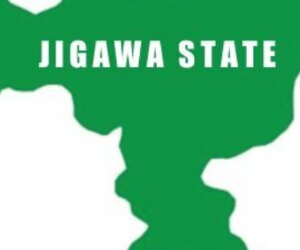Luno, one of Africa’s leading crypto platforms, has today rolled out a tokenised global stocks service in Nigeria, following a successful debut in South Africa earlier this year. The move makes Luno the first Africa-founded exchange to offer Nigerians direct access to international equities and ETFs through tokenisation.
For the first time, everyday Nigerians can buy shares in more than 60 of the world’s leading companies, from Apple and Tesla to Nvidia and Microsoft, directly in Naira, without the need for offshore broking accounts, foreign currency conversions, or waiting for US markets to open.
Nigeria’s financial space has long been marked by high entry barriers for capital market participation. According to the Central Bank of Nigeria, the country’s financial inclusion rate stands at 74%. Yet, fewer than 5% of adults are active in the capital markets.
The reasons are clear: complex account opening procedures, minimum investment thresholds, foreign exchange scarcity, and strict regulatory hurdles. For most Nigerians, accessing international markets has been almost impossible.
Luno’s tokenised stocks directly address this gap. By allowing Nigerians to invest with local currency and in fractions of shares, the product makes global investing more inclusive, transparent, and affordable.

Ayotunde Alabi, CEO of Luno Nigeria, underscored the significance of this breakthrough, saying, “Global markets have always been an exclusive club, but technology now allows us to break down those walls. With tokenised stocks, we’re giving millions of Nigerians a genuine chance to invest in the same world-leading companies, from Apple and Tesla to Nvidia and Microsoft, on equal footing with investors anywhere, in a way that’s simple, transparent, and built for the realities of our market.”
How the Luno tokenised stocks offering works
The tokenised global stocks offered by Luno are fully backed by underlying shares held in regulated custody through international partners, including Kraken’s xStocks and Backed Finance. This ensures that the tokens are tied directly to real-world assets and meet global standards for compliance, security, and transparency.
Investors can choose to buy full shares or fractions, making it easier for those with smaller budgets to participate.
Settlements happen instantly, meaning funds and assets are available without delays. Unlike traditional markets, Luno allows trading 24 hours a day, five days a week, with plans to expand to round-the-clock access, including weekends.
All of this is integrated into the familiar Luno app, allowing users to manage both crypto and stocks on a single secure platform.


This simplified approach mirrors the design that made Luno a household name in crypto investing across Africa and positions tokenised stocks as the next frontier for digital wealth creation.
Lessons from South Africa
The rollout in Nigeria follows a successful debut in South Africa in July 2025, where the product quickly gained traction. Within the first month, more than 10,000 South Africans had invested in global companies through Luno’s tokenised offering.
The strong uptake demonstrated the pent-up demand across Africa for accessible investment products that go beyond cryptocurrencies.
Nigeria, with its youthful, tech-savvy population and strong appetite for wealth-building opportunities, is a natural next step for this expansion. Luno’s entry into Nigeria’s stock market space signals confidence in the country’s potential to drive widespread adoption of innovative financial tools.


The launch of tokenised stocks could be transformative for Nigeria’s investment ecosystem. Nigerians will no longer need large sums of money or foreign bank accounts to participate in global markets. Instead, they can start with small amounts in their local currency, opening doors to wealth creation opportunities previously reserved for the privileged few.
Access to global equities and ETFs also gives investors a chance to diversify their portfolios, balancing local economic risks with international exposure.
This is particularly important in a country where inflation and currency depreciation often eat away at savings; the ability to hold assets linked to some of the world’s strongest companies could be life-changing. This innovation also supports Nigeria’s financial inclusion goals, empowering more people to participate in wealth-building activities.
For many Nigerians, this represents the first realistic opportunity to invest in companies they use and admire daily, from global technology giants to leading consumer brands.








